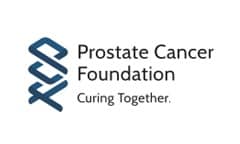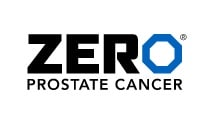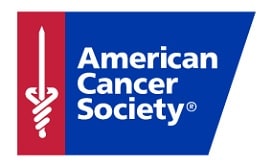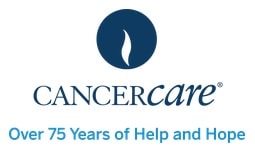At any time during your prostate cancer experience
Throughout your cancer experience, you may turn your attention to boosting your health and resilience and also creating a body that is less supportive of cancer. You may need to evaluate and address symptoms such as anxiety, depression, and stress.
Also see separate sections in this handbook about further recommendations and approaches you can use at specific times during your cancer experience.
Top practices and therapies we have reviewed for improving cancer outcomes and body terrain at any time
Your body terrain is the whole environment in which your cancer grows and includes specific terrain factors that can impact cancer growth and development.
These practices and therapies have at least modest evidence for the medical benefits listed. We add to this list as we complete new reviews of practices and therapies.
Self-care practices
Complementary therapies
Metformin › (among people with diabetes)
On this page
Improving cancer outcomes
We present self-care practices and complementary therapies supported by evidence to promote better cancer outcomes or body terrainthe internal conditions of your body, including nutritional status, fitness, blood sugar balance, hormone balance, inflammation, and more. Those with the best evidence are presented first.
A practice or therapy may show a stronger effect or have more evidence in some situations than in others. The evidence supporting the effects for each practice or therapy is listed in the full reviews available through the image links.
Strong, good, or modest evidence of benefit for cancer outcomes
Strong evidenceconsistent, significant effects in several large (or at least one very large) well designed clinical studies or at least two meta-analyses of clinical studies of moderate or better quality (or one large meta-analysis) finding similar results (this is the CancerChoices definition; other researchers and studies may define this differently) indicates confidence that the practice or therapy has an effect as noted. Good evidencesignificant effects in one large or several mid-sized and well-designed clinical studies (randomized controlled trials (RCTs) with an appropriate placebo or other strong comparison control or observational studies that control for confounds) (this is the CancerChoices definition; other researchers and studies may define this differently) indicates that the practice or therapy is linked to the outcomes described with reasonable certainty. Modest evidencesignificant effects in at least three small but well-designed randomized controlled trials (RCTs), or one or more well-designed, mid-sized clinical studies of reasonably good quality (RCTs or observational studies), or several small studies aggregated into a meta-analysis (this is the CancerChoices definition; other researchers and studies may define this differently) means the practice or therapy may be linked to the outcomes described, but with a lower degree of certainty.
Eating Well: modest to weak evidence
Some foods and eating patterns are linked to better survival, while others are linked to worse survival. Find strategies to eat well in this handbook.
Specific to prostate cancer:
- Less progression among people with prostate cancer eating higher levels of cruciferous vegetables (broccoli family) (modest evidence)
- Lower risk of Gleason grade progression among men with low or low-intermediate risk prostate cancer eating a baseline diet higher in total fruits, whole fruits, total vegetables, greens and beans, whole grains, dairy, total protein foods, seafood and plant proteins and unsaturated to saturated fatty acids ratio and/or lower in refined grains, sodium, added sugars and saturated fats (modest evidence)
- Lower cancer-specific mortality among men with non-metastatic prostate cancer eating higher levels of vegetable fats after diagnosis and higher all-cause mortality among men with non-metastatic prostate cancer eating higher levels of saturated and trans fats (modest evidence)
- Slightly lower androgen levels among people with prostate cancer eating a low-carbohydrate diet (preliminary evidence)
- Increased risk of progression among people with prostate cancer eating eggs or poultry with skin, but no evidence of an effect with other types of meat (preliminary evidence)
- Longer prostate specific antigen (PSA) doubling time among people drinking pomegranate juice (weak evidence)
- PSA stabilization among people eating more tomato-based foods and taking soy supplements (weak evidence)
Cancer as a whole:
- Better survival among people with cancer as a whole following the recommended diet patterns of increasing vegetables and fruits and reducing red meat, processed foods, and saturated fats (modest evidence)
Moving More: mixed evidence
Find strategies to move more in this handbook.
Specific to prostate cancer:
- Improved survival and reduced disease progression among people with prostate cancer with higher levels of physical activity after diagnosis (strong evidence)
- No evidence of a change in prostate-specific antigen (PSA) among men with prostate cancer participating in resistance exercise in a combined analysis of studies
Cancer as a whole:
- Moderately better survival with cancer as a whole among people with higher activity levels after diagnosis (good evidence)
Managing Stress: strong evidence
Find approaches to manage stress in this handbook.
Cancer as a whole:
- Better survival among people with cancer as a whole with lower levels of stress (good evidence)
Sleeping Well: modest evidence
Find approaches to promote better sleep in these handbooks.
Cancer as a whole:
- Slightly higher cancer mortality among people with cancer with either too little (less than seven hours) or too much (nine hours or more) sleep (modest evidence)
Sharing Love and Support: good and modest evidence
Find strategies to enhance the love and support in your life in this handbook.
Cancer as a whole:
- Better cancer survival among people who are married, partnered, or have more social connections (good evidence)
- Lower incidence of of suicidal thoughts among people with cancer with higher levels of social support (modest evidence)
Manage anxiety: good evidence
Fears and worries related to cancer, treatments, recurrence, and their impacts on you and your family may trigger anxiety. Find approaches to manage anxiety in this handbook.
Cancer as a whole:
- Higher cancer-specific and all-cause mortality among people with cancer experiencing anxiety (good evidence)
Manage body weight: modest evidence
Specific to prostate cancer:
- Higher cancer-specific mortality among men with obesity or gaining weight after diagnosis (modest evidence)
Manage high blood sugar and insulin resistance: modest and preliminary evidence
Find approaches to manage high blood sugar and insulin resistance in this handbook.
Specific to prostate cancer:
- Higher mortality among people with prostate cancer with diabetes (modest evidence)
- Worse survival among people with advanced prostate cancer with higher levels of insulin-like growth factor-1 (IGF-1) (preliminary evidence)
Solid tumors as a whole:
- Slightly higher mortality among people with solid tumors with diabetes (good evidence)
Aspirin: mixed evidence
Specific to prostate cancer:
- Better survival among people with prostate cancer using aspirin after diagnosis (modest (somewhat conflicting) evidence)
- Lower metastasis among people with prostate cancer using aspirin, with a stronger effect with use after diagnosis (modest evidence due to inclusion of non-aspirin nonsteroidal anti-inflammatory drugs, NSAIDs)
Cancer as a whole:
- Lower mortality among people with adenocarcinoma using aspirin regularly, particularly among those without metastasis, and with greater benefit among people who smoke (strong evidence)
- Better progression-free survival but no evidence of an effect on overall survival among people with cancer as a whole treated with low-dose aspirin during treatment with immune checkpoint inhibitors (good evidence)
Flaxseed: modest evidence
Specific to prostate cancer:
- People with prostate cancer who added flaxseed to their diets saw lower markers of cancer growth in two studies.
Metformin: mixed evidence
Most of metformin’s benefits are seen among people with diabetes or prediabetes.
Specific to prostate cancer:
- Diabetic people with prostate cancer treated with metformin showed lower overall and cancer-specific mortality across many studies.
Cancer as a whole:
- Diabetic people with cancer treated with metformin had lower cancer-specific mortality across many observational studies.
Mistletoe: modest evidence
Cancer as a whole:
- Better survival among people with cancer as a whole treated with Iscador (modest evidence)
Statins
People with prostate cancer treated with statins show moderately lower cancer-specific mortality, with stronger effects with use before a cancer diagnosis.
Vitamin D: good to weak evidence
Specific to prostate cancer:
- People with prostate cancer with low vitamin D levels have shown higher mortality, including cancer-specific mortality, across many studies.
Cancer as a whole:
- People with cancer with low vitamin D levels have shown worse cancer-specific survival across many studies.
- People treated with daily vitamin D3 supplements have slightly lower cancer-specific mortality across many studies, but bolus supplementation has not shown the same effect. People with cancer taking vitamin D supplements also show better overall survival.
Preliminary or weak evidence of benefit for cancer outcomes or body terrain
Preliminary evidencesignificant effects in small or poorly designed clinical studies OR conflicting results in adequate studies but a preponderance of evidence of an effect (this is the CancerChoices definition; other researchers and studies may define this differently) means the practice or therapy may be linked to the outcomes described, although substantial uncertainty remains. Weak evidenceone or more case studies, supported by animal evidence OR small treatment effects of limited clinical significance OR studies with no controls OR weak trends of effects (this is the CancerChoices definition; other researchers and studies may define this differently) may mean that the effects are small or that a high degree of uncertainty remains about the links between the practice or therapy and the outcomes described.
No evidence or insufficient evidence of benefit for cancer outcomes
Cancer as a whole:
- Insufficient evidence of anticancer effects with cancer as a whole among people eating a ketogenic diet
Specific to prostate cancer:
- No evidence of an effect on prostate-specific antigen (PSA) levels among men with prostate cancer treated with reishi mushrooms in a preliminary trial
Cancer as a whole:
- No evidence of an effect on survival among people with cancer as a whole participating in support groups with their family caregivers in a combined analysis of studies
Advanced prostate cancer
- No evidence of anticancer effects among people with metastatic castration-resistant prostate cancer treated with infusions of ascorbic acid in an uncontrolled trial
Optimizing your body terrain
Your body terrain is the whole environment in which your cancer grows.
See these completed body terrain handbooks for information about the connections between these factors and cancer, and for guidance on improving your body terrain. You can do much on your own, but professional healthcare management may also be necessary. Find health professionals who specialize in managing body terrain ›
We’re building more handbooks on body terrain.
Managing symptoms and promoting wellness
Self-care practices, supplements, mind-body therapies, and other complementary therapies may reduce symptoms and enhance your quality of life all throughout your cancer experience.
For some symptoms, we have complete handbooks, as linked below. For other symptoms and for quality of life and physical function as a whole, we list here the effects of complementary therapies and practices we’ve reviewed.
We report the evidence relating to benefits from using these practices and therapies. Please also review the Safety and precautions page within the linked reviews for guidance on safe use. We recommend supervision from a medical professional trained in the use of complementary therapies.
Strong evidenceconsistent, significant effects in several large (or at least one very large) well designed clinical studies or at least two meta-analyses of clinical studies of moderate or better quality (or one large meta-analysis) finding similar results (this is the CancerChoices definition; other researchers and studies may define this differently) indicates a high degree of confidence that the therapy is linked to the outcomes as noted. Good evidencesignificant effects in one large or several mid-sized and well-designed clinical studies (randomized controlled trials (RCTs) with an appropriate placebo or other strong comparison control or observational studies that control for confounds) (this is the CancerChoices definition; other researchers and studies may define this differently) indicates a relatively high degree of confidence that the therapy is linked to the outcomes as noted.
Preliminary evidencesignificant effects in small or poorly designed clinical studies OR conflicting results in adequate studies but a preponderance of evidence of an effect (this is the CancerChoices definition; other researchers and studies may define this differently) typically indicates that not much research has been published so far, although the outcomes may be meaningful. Weak evidenceone or more case studies, supported by animal evidence OR small treatment effects of limited clinical significance OR studies with no controls OR weak trends of effects (this is the CancerChoices definition; other researchers and studies may define this differently) may mean that the effects are small or that only very preliminary research has been published.
A therapy may show a stronger effect or have more evidence in some situations than in others. The evidence supporting the effects for each therapy is listed in the full reviews available through the links.
How experts approach care throughout your cancer experience
Clinical practice guidelines
Recommendations from these 2009 guidelines relate to managing symptoms common among people with cancer. Specific recommendations for each symptoms are listed in separate handbooks: Managing Symptoms and Side Effects ›
Published programs and approaches
Donald Abrams, MD
Abrams D. An integrative approach to prostate cancer. The Journal of Alternative and Complementary Medicine. 2018 Sep/Oct;24(9-10):872-880.
This approach addresses many phases of cancer care. See other pages in this handbook for further programs that apply to specific phases.
Geo Espinosa, ND
Dr. Geo Espinosa presented his protocols in a webinar hosted by the Academy of Integrative Health & Medicine. Selected excerpts discuss different topics:
- Protocol for overall prostate cancer, beginning at 1:01:18 and continuing until 1:06:55 minutes into the recording (5 minutes 37 seconds run time)
- Protocol for low-risk prostate cancer, beginning at 16:55 and continuing until 33:37 minutes into the recording (16 minutes 42 seconds run time)
- Protocol for advanced prostate cancer, beginning at 46:42 and continuing until until 1:01:18 minutes into the recording (14 minutes 36 seconds run time)
- Dr. Espinosa answers questions about infrared therapy, berberine, use of neutraceuticals during radiation treatment, protocols for different cancer stages, whether people should take breaks from supplements, CBD oil, using supplements during PSMA therapy, and ozone therapy. This segment beginning at 1:07:23 and continuing until 1:29:18 minutes into the recording (21 minutes 55 seconds run time)
Learn more
References





